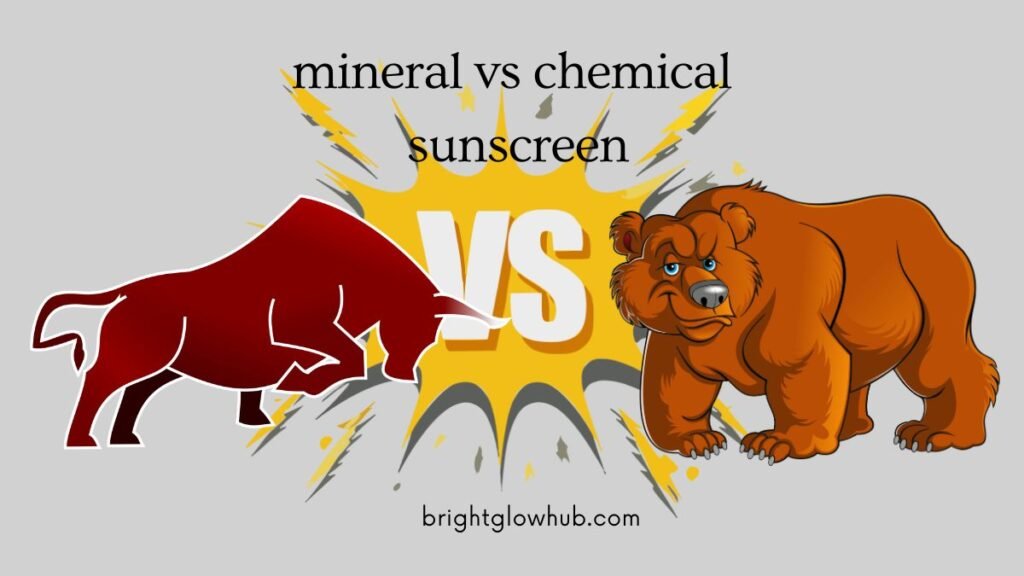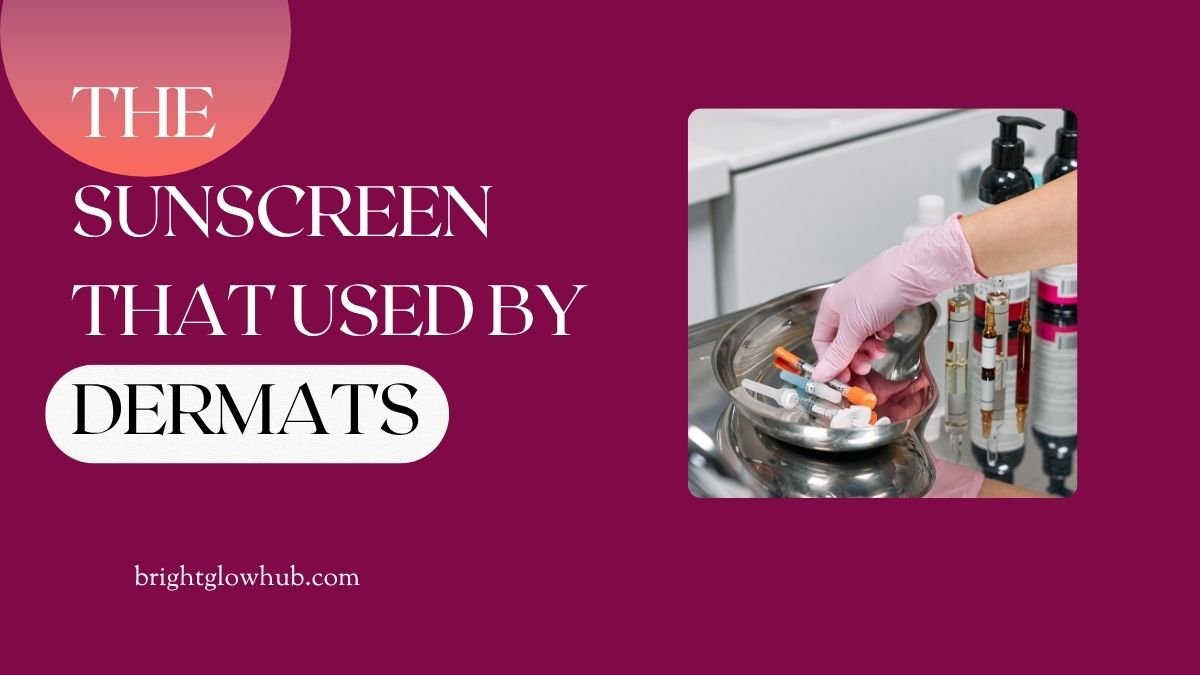Dermatologist-Recommended Sunscreens
Let’s be real: the sunscreen aisle can be overwhelming. It’s a wall of bottles, tubes, and sprays, all promising to be the best. You’re left squinting at labels, trying to decipher chemical vs. mineral, SPF 30 vs. 50, and whether that “reef-safe” claim is legit.
Wouldn’t it be easier if a dermatologist could just hold your hand and walk you through it?
Well, consider this your virtual skincare consultation! We’ve done the deep dive into the science and the recommendations from top skin experts to cut through the noise. We’re answering the burning question: what are the best dermatologist-recommended sunscreens?
Forget the guesswork. It’s time to find your skin’s new best friend.
Why Trust a Dermatologist-Recommended Sunscreens, Anyway?
Dermatologists don’t just treat skin cancer and acne; they are scientists who understand how ingredients interact with your skin on a cellular level. They recommend sunscreens based on three key pillars:
- Efficacy: Does it actually provide broad-spectrum protection against both UVA (aging) and UVB (burning) rays?
- Safety: Are the ingredients backed by long-term research and considered safe for most skin types?
- Cosmetic Elegance: Will people actually want to wear it every day? A sunscreen that doesn’t feel greasy, heavy, or leave a white cast is a sunscreen that gets used.
This trifecta is what separates the truly best sunscreens dermatologist recommended from the rest.
The Great Debate: Mineral vs. Chemical
First, a quick science lesson. There are two main types of sunscreen actives:

- Mineral (Physical): Uses natural minerals like Zinc Oxide and Titanium Dioxide. They sit on top of your skin like a shield, physically blocking and reflecting UV rays. They are gentle, effective immediately upon application, and are ideal for sensitive and acne-prone skin.
- Chemical: Uses organic compounds like avobenzone and oxybenzone. They absorb into the skin, where they convert UV radiation into heat, which is then released from the body. They tend to be lighter and more transparent on the skin.
Dermatologists often have a soft spot for mineral formulas, especially for those with reactive skin. But the best sunscreen is always the one you’ll wear consistently!
Mineral vs. Chemical Sunscreen: Which Is Actually Better For You?
The Hall of Fame: Top Dermatologist-Recommended Picks
Here are the formulas that consistently get a gold star from skin experts.
The Best All-Around Mineral Champions (Hello, No White Cast!)
For years, the biggest complaint about mineral sunscreens was the ghostly white residue. Not anymore! These top mineral sunscreens dermatologist recommended have cracked the code.
- EltaMD UV Clear Broad-Spectrum SPF 46: This is practically a cult classic in derm offices. It’s a hybrid formula (mostly mineral with one chemical filter) that’s loaded with niacinamide and hyaluronic acid to calm and hydrate. It’s a dream for rosacea, acne, and super sensitive skin.
- La Roche-Posay Anthelios Mineral Ultra-Light Fluid SPF 50: This feather-light fluid feels like nothing on the skin. Its Cell-Ox Shield technology combines antioxidants with high-quality Zinc Oxide for powerful protection without the chalky finish. It’s a flawless makeup primer.
- CeraVe Hydrating Mineral Sunscreen SPF 50 Face Sheer Tint: Drugstore royalty! CeraVe is a derm darling for a reason. This tinted formula eliminates any white cast while packing a punch with ceramides to restore your skin’s barrier. It’s effective, affordable, and feels amazing.
The Best Pure Mineral Sunscreens for Maximum Protection
When you need the gentlest, most robust shield possible, these are the best mineral sunscreens dermatologist recommended for the job.
- Vanicream Moisturizing Broad-Spectrum SPF 50: Formulated for the most sensitive skin types, including those with eczema. It’s free of dyes, fragrance, parabens, and formaldehyde. It’s a no-nonsense, incredibly reliable workhorse.
- ISDIN Eryfotona Actinica SPF 50+: This is the luxury pick that derms love for their patients with sun damage. It’s 100% Zinc Oxide and infused with DNA Repairsomes® and Vitamin E to help repair existing UV damage while preventing new stuff. Think of it as an anti-aging treatment and sunscreen in one.
The Best Chemical Sunscreens for Everyday Wear
For those who prefer an ultra-invisible finish, these chemical options are frequently endorsed.
- Supergoop! Unseen Sunscreen SPF 40: This completely clear, weightless gel feels like a premium primer. It’s a masterclass in cosmetic elegance and is a favorite for wearing under makeup or on its own.
- Neutrogena Hydro Boost Water Gel Lotion SPF 50: Hydrating, non-comedogenic, and absorbs instantly. It’s proof that effective sun protection can come from the drugstore without a greasy feel.
Disclaimer :
we are not professional dermatologist we have well researched and wrote this blog
This article is for informational purposes only and does not constitute medical advice. For specific concerns about skin conditions or reactions, please consult a board-certified dermatologist.
Interesting picks :
Sunscreen Mistakes Indians Make Daily
Your Dermatologist’s Cheat Sheet: How to Choose
- Broad-Spectrum is Non-Negotiable: This protects you from both UVA and UVB rays.
- SPF 30 is the Minimum, SPF 50 is Ideal: SPF 30 blocks about 97% of UVB rays, while SPF 50 blocks about 98%. Reapplication is more important than the number.
- Water-Resistant for Sweat & Swimming: No sunscreen is waterproof, but this label means it will maintain its SPF level for 40 or 80 minutes in water.
- Apply (and Reapply!) Liberally: You need a shot glass amount for your body and a nickel-sized amount for your face. Reapply every two hours, or immediately after swimming or sweating.
Ultimately, the best sunscreens dermatologist recommended is the one you love enough to make a non-negotiable part of your morning routine, 365 days a year. Rain or shine. Your future skin will thank you.
What’s your holy-grail sunscreen? Share your favorites in the comments below!
